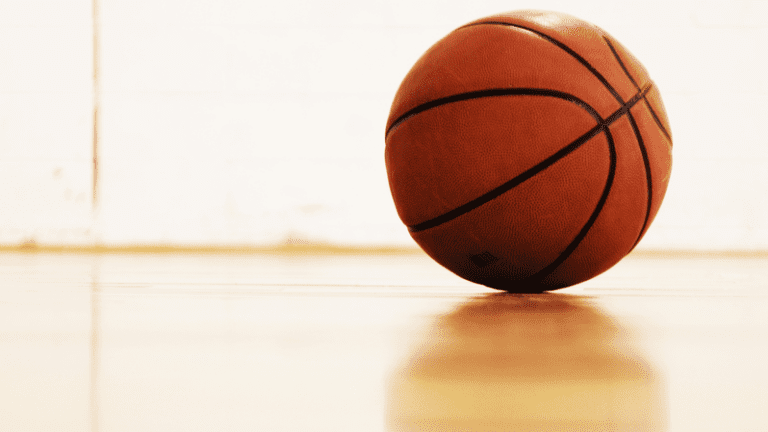1. Are my habits in line with my goals?
Another way to put this: Are my actions today going to get me where I want to be in a month? Six months? A year? People often avoid this question because they don’t want to hear the truth. They don’t want to face the fact that they will never reach their goals with their current habits. The best players constantly compare their goals and their habits to make sure they align. If they don’t, then revamp your habits so that they match up with your goals.
To help with this process, visualize your goals. Imagine everything about them down to the most minute details. If your goal is to get paid to play basketball, imagine the level of competition that you’ll be up against: the size, speed, strength and skills of your opponents. Now, be brutally honest with yourself. Are your day-to-day habits going to get you to that level?
2. Am I training the right skills?
Efficiency is often touted as the route to accomplishment and achievement. But efficiency is nothing without effectiveness. Peter Drucker summed it up nicely,
“Efficiency is doing things right, effectiveness is doing the right things.” — Peter Drucker
Efficiency is helpful but not sufficient. Effectiveness, on the other hand, is where your bread is buttered. You can spend as much time in the gym as you want, but if you’re not working on the right skills, the time spent is mostly a waste.
3. Am I spending my effort wisely?
The 80-20 rule states that for any given activity, roughly 80% of the effects come from 20% of the causes. Translate this to basketball and you get something like this: 80% of the results comes from 20% of the skills. To demonstrate this, I’ve taken data from the 2014-15 college basketball season including every level (DI, DII, DIII, NAIA etc.). Roughly, here’s what I found:

What does this mean? It means that jump shots account for over half of the total shots taken in a game. These numbers include all positions (even big men) so it stands to reason that this number is even higher for guards. On the other hand, the typical college program has fewer than 6 isolation plays per game!
I’m not saying don’t play 1 on 1. I believe 1 on 1 is an incredible tool, and I’ve written about its virtues in a previous post. But when you’re in the gym by yourself or are focused on improving your skills, don’t simply practice the isolation moves you see NBA players make. Spend the majority of your time and effort working on skills that will show up in the game.
By applying the 80-20 rule here, it becomes obvious that most players should be spending a ton of time on their shooting. Unless you’re strictly a back to the basket post player and can physically dominate your opponents with post moves, developing a jump shot is crucial. Being a good shooter makes the rest of the game easier. If you’re a knockdown shooter, defenders have to guard you tighter, allowing you to get to the basketball much easier.
Think about Steph Curry, he doesn’t have blazing quickness or athleticism, but he consistently can get to the rim, in part, because defenders can’t give him any airspace.
Being a shooter also opens up backdoor opportunities and makes the floor much more spaced out for your teammates. Practicing your shooting, however, is the first domino. Once you knock the first one over, the rest follow. You first need to become a good shooter for the rest of those benefits to occur.
4. Can I be doing more? Can I be doing what I’m currently doing better?
Technically, this is two questions, but they’re based on the same idea: Always keep exploring how to increase your rate of improvement. Have you leveraged every aspect that could influence your basketball performance? For example, your diet, your sleep habits, your stretching, etc.; all the little things add up to make a huge difference over time.
As far as the second question goes, is every minute in the gym and weight room being utilized effectively? Are you doing the right drills and exercises to maximize your improvement? Consider your end goal and what you need to get there. Then reverse engineer your training to meet that goal.
5. Am I performing high-quality reps?
Are you practicing lazy shots or game shots? Are you constantly pushing yourself outside of your comfort zone? Are you engaged and focused on proper technique every rep?
Remember, practice doesn’t make perfect, practice makes permanent. Make sure you’re providing the necessary mental effort and energy to make every rep valuable. Lazy reps are worse than just a waste of time. They promote bad habits that are difficult to unlearn and will carry over into the season.
6. How can I consistently recreate great workouts?
Think about the last few times you had a great workout. Those times where you were completely in the zone on all of your drills and were working your tail off. You were probably having a great time and felt a sense of accomplishment when you finished your training session. How can you make those types of workouts happen more often?
Go back and think about those days. What did you do differently that day when compared to all your other days? Did you eat a healthy meal 2 hours before? Did you do a different warm-up routine? Did you workout early or late in the day? Were you alone or with a training partner?
Over time, you’ll begin to figure out how to best optimize these factors to produce the most effective workouts. Then just try to repeat that as closely as possible, occasionally testing new factors to see if it further improves your training.
7. Do I have a plan?
How do you plan to reach your long term goal? Without the specific steps for reaching that goal, it’s very easy to get lost along the way.
“A goal without a plan is just a wish.” — Anoine de Saint-Exupery
Do you plan out your individual workouts? I can’t stress enough the value of simply writing it down. Just spend 5 minutes and jot down the drills you want to get through during your workout. It not only creates a better workout but also organizes your thinking. In doing so, it allows you to target your drills to reach your long term goals rather than simply choosing whatever drill you can think of in the moment.
Write these 7 questions down and use them to hold yourself accountable this offseason. Every few weeks, look over the questions and assess your performance. Figure out where you’ve drifted off course and correct it.
How useful was this post?
Click on a star to rate it!
Average rating 5 / 5. Vote count: 2
No votes so far! Be the first to rate this post.





One Response
extremely useful. thank you for the value